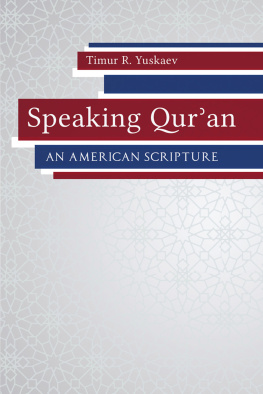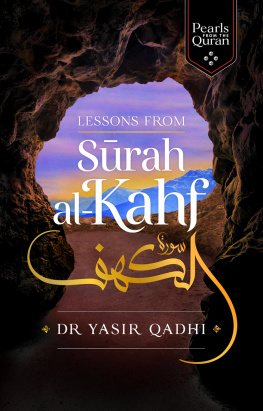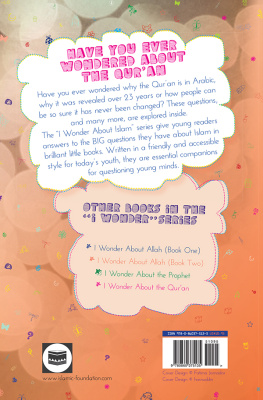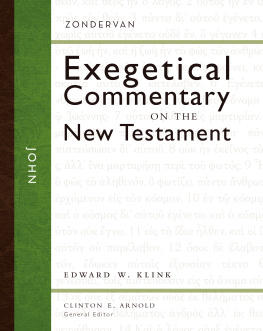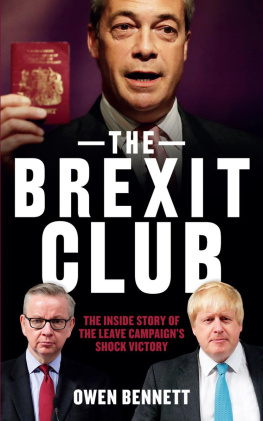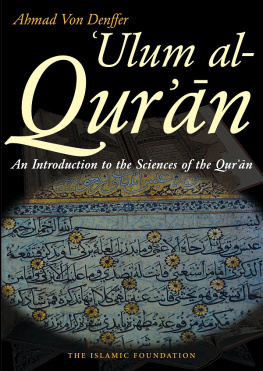
Speaking Quran
Studies in Comparative Religion
Frederick M. Denny, Series Editor
Speaking Quran
AN AMERICAN SCRIPTURE

Timur R. Yuskaev

THE UNIVERSITY OF SOUTH CAROLINA PRESS
2017 University of South Carolina
Published by the University of South Carolina Press
Columbia, South Carolina 29208
www.sc.edu/uscpress
26 25 24 23 22 21 20 19 18 17
10 9 8 7 6 5 4 3 2 1
Library of Congress Cataloging-in-Publication Data can be found at http://catalog.loc.gov/
ISBN 978-1-61117-794-7 (hardcover)
ISBN 978-1-61117-795-4 (ebook)
To Nadya, Adam, and Olivia
CONTENTS

SERIES EDITORS PREFACE

Speaking Quran is a long-needed historical study and contemporary explication of how Islams sacred scripture has been studied, obeyed, chanted, and deeply loved by devout Muslims in North America for generations. Now that there is a sizable and richly diverse community of Muslims here, it is important for citizens in both Canada and the United States to learn about, respect, and appreciate Muslims, their beliefs and practices, and their social and cultural ideals and customs as they become authentic citizens in their chosen communities.
Longstanding North American religious communities since the immigration of Europeans and other new citizens have been largely devoted to Jewish and Christian scriptural texts with beliefs, values, and practices shared through the Hebrew Bible with its Mosaic and prophetic teachings, known by most Christians as the Old Testament, which was followed by the New Testament, with the teachings of Jesus and his life. The Islamic Quran (reading, recitation), believed by Muslims to be the actual words of Allah/God, is also within the expanded communities of what Jews, Christians, and Muslims acknowledge as the Abrahamic traditions.
Professor Yuskaev provides for his readers a delightfully detailed and civilized tour through historical, spiritual, cultural, social, and contemporary dimensions of how Muslims have developed and are energetically dedicated to serving their faith communities while always being deeply devoted American citizens as well. Speaking Quran: An American Scripture will be an important choice for high school and college courses, as well as faith communities and the general public for years to come.
Frederick Mathewson Denny
ACKNOWLEDGMENTS

T his book is a product of many coincidences, experiences, and exchanges. Some of them were official interviews: a thousand thanks, as always, to Faheem Shuaibe, Abdullah bin Hamid Ali, Sadaf Khan, Sayyid M. Syeed, Benkong Shi, and many other anonymous interviewees, especially my mentor in . Beyond this circle are dozens of other conversation partners I encountered while researching and writing what would become Speaking Quran (including Amina Wadud, whose hospitality and advice I will never forget).
Still beyond that group are hundreds of other interlocutors, mentors, and friends from many walks of life, who helped me learn how to hear American experiences and scriptures. They include, centrally, those with whom I had the privilege to work while serving on staff of the Interfaith Center of New York from 1999 to 2005, long before this book was conceived: Aisha al-Adawiyya, James Parks Morton, Matt Weiner, Alfonso Wyatt, Sarah Sayeed, Ratan Barua, Kusumita Pedersen, Uma Mysorekar, Myo Ji Sunim, Antonio Mondesire, Feisal Abdul Rauf, Bill Leicht, Henry Young, Tamara Greenfield, Craig Miller, Talib Abdur-Rashid, Abd Allah Latif Ali, Muhammad Abd Al-Rahman, David Ball, Louis Cristillo, Musa Drammeh, Alamelu Iyengar, Muhammad Hatim, Ibrahim Abdul-Malik, Mohamed Moussa, Kevin James, Faroque Khan, T. K. Nakagaki, Andrew Stettner, Moushumi Khan, Souleimane Konate, Saeed Phipps, Asha Samad, Sana Shabazz, Abdus-Salaam Musa, Muhain Alidina, Alice Fisher, Shamsi Ali, Amir Al-Islam, Nadeem Kazmi, Munire Terpis, Nurah-Rosalie Cordner, Adem Carroll, Robina Niaz, Debbie Almontaser, George Stonefish, Moustafa Bayoumi, Ashin Indaka, Zain Abdullah, Muhammad Tariqur Rahman, Annie Rawlings, Naim Baig, and many, many othersI cannot name and thank them all, a shortcoming that reflects just how blessed I have been.
The first written inklings of this text appeared during a class with Bruce Lawrence at Duke University, another class at Duke with Ebrahim Moosa, and then, simultaneously, classes and informal exchanges with Carl Ernst, Omid Safi, Thomas Tweed, Laurie Maffly-Kipp, Yaacov Ariel, Lauren Leve, Randal Styers, and many others at the University of North Carolina at Chapel Hill. One of this books key approaches came from a class with Carol Blair, also at UNC, which I took because of Peter Wright. Charles Kurzman, through a side project, taught me how to collect and analyze American Muslim dialogues. Many of my recordings of such voices come from the fieldwork I conducted as a recipient of the Social Science Research Councils Muslim Modernities Pre-Dissertation Research Fellowship. My ability to interweave these and other threads with what I heard and read before and after was fine-tuned during the SSRC workshops in conversation with other Muslim Modernities fellows. From there emerged my dissertation, which followed the outline but not the full argument of this book. It was supervisedoften with elegant understatementby Ernst, Lawrence, Safi, Kurzman, and Ariel. I was assisted in the arduous task of translating that initial text into a related but very different book by my colleagues at Hartford Seminary: Mahmoud Ayoub, Yahya Michot, Sami Shamma, Benjamin Watts, Bilal Ansari, Scott Thumma, Usman Khan, Feryal Salem, Khalil Abdullah, Yehezkel Landau, Tricia Pethic, Shanell Smith, Ryan Sawyer, Lucinda Mosher, Jawad Bayat, Steven Blackburn, Kaiser Aslam, Ingrid Mattson, M. T. Winter, Uriah Kim, Heidi Hadsell, and others. My thanks to all, to those who read and commented on chunks of my constantly changing chapters, as well as to those whose conversations, often on alternate subjects, have shaped what materialized in the end. Beyond Hartfords welcoming walls, I am particularly grateful to Juliane Hammer, Martin Nguyen, Rumee Ahmed, and Gregory A. Lipton for offering insightful reflections and much-needed prompting. A special thanks is due to Jim Denton and the patiently meticulous editorial team at the University of South Carolina Press.
The people who set me on my academic and professional path were Lynda Clarke of Bard College (later of Concordia University) and Frederick Denny of the University of Colorado Boulderas well as many others, such as Lawrence Mamiya and Ihsan Bagby, who invited a twenty-year-old undergraduate version of me to accompany them as they interviewed African American imams in New York City in 1993; a professor of literature at Bard who taught a magnificent class on Nabokov (and who, I am sure, does not remember my name); Mark Lytle and Gennady Shkliarevsky at Bard and Ira Chernus at CU-Boulder (I would not be where I am now without their efforts); and my literature teacher in St. Petersburg, Russia, Elza Bazhenova. To all of them, I am in debt.
Yet my greatest debt is to my family: my mother, father, brother, and grandmothers, and to Nadya, Adam, and Olivia. Words fail me. Silently, continuously, I thank you from my heart.
Next page
